- Home
- Hugh Howey
The Hurricane Page 7
The Hurricane Read online
Page 7
Daniel looked up at the sky. He could see clouds off in one direction, but the house blocked the other. It didn’t look like the solid wall of a hurricane’s eye like he imagined it should, but then, the woods hid the entire lower half. He was just seeing the dark tops of the storm.
“Are you sure?” he asked.
“Pretty sure,” Carlton said.
“The worst part was the last hour,” his mom added. “It sounded like the house was gonna blow over. And then it just went dead quiet.” She snapped her fingers.
Daniel spun around and took in the utter destruction of their front yard. He heard a cat mew pathetically in the distance. He couldn’t see past the tall walls of fallen limbs to see how bad off the rest of the neighborhood was.
“How long do we have?” he asked.
Carlton ran his fingers through his hair. “Depends on how large the eye is and how fast the storm’s moving. I hope we don’t have long.”
“You’re ready for it to come back?”
Daniel didn’t understand.
“I’m ready for it to move on. I’d hate for it to stall here.”
Daniel nodded.
“Do you think it’s safe to run around the house and see how everything else looks?”
His mother shook her head. “There might be power lines down or something else we can’t think of. Let’s just get back inside.”
“I’m going to go upstairs and see how bad the damage is,” Carlton said. “And we should try and eat something before the winds pick back up.”
Zola appeared behind him, dragging her blanket, which she held wrapped around her shoulders. “Can I go upstairs, too?” she asked. Before anyone could answer, she dropped the blanket and turned and ran toward the stairs. Carlton kissed Daniel’s mom and ran after her.
“Sucks about the house,” Daniel told his mom. He followed her into the house and watched her close the door and secure the deadbolt.
“It’s insured,” she said. “I just hate it for Zola. I hope it’s not that bad.”
“It looked pretty bad.”
She waved him toward the kitchen. “I don’t want to try the gas just yet, so let’s do cereal.” She went to the cabinet and pulled out a mix of boxes. “We also have these Poptarts if anyone wants to eat them cold.”
“How long will we be without power?” Daniel grabbed the milk out of the fridge and shut the door as fast as he could, trapping the cold inside what had become a lifeless cooler.
“It might be a few days, as bad as it looks outside. And it might look even worse once the other side of the storm gets done with us.”
“It doesn’t feel like anything’s about to happen,” Daniel said. Looking out the window, it looked like a normal morning with just some heavy rainclouds on the horizon.
Zola stomped down the stairs with the heft of a mule and burst into the kitchen, crying. She had her sodden bookbag on one shoulder, a stuffed animal in her hand.
“It’s ruined!” she cried. She ran into her mother’s arms and threw her hands around her back. “Everything’s ruined!”
Their mom didn’t say anything. Carlton walked in and went immediately for the cereal. Daniel noticed, in the sad and quiet exhaustion on his mother’s face, how worn out she was. Her work weeks were invariably draining, but she always had the weekend to recharge herself. A glance out the windows—past the leaves and twigs plastered to the glass and to the debris field beyond—suggested it would be some time before anyone rested.
The light outside dimmed like a curtain drawn over the sky.
“Get some breakfast,” their mother said. She let go of Zola and passed her a bowl. Carlton crunched loudly on his cereal and leaned over the sink to gaze up at the sky.
“Make it quick,” he mumbled around his food.
An eerie shade fell over the house. A distant howl drew closer. It sounded like wide and fast columns of highway traffic were whizzing nearby. Daniel shook some cereal into a bowl, did the same in the bowl held out by his sister, watched his mom splash some milk on both, then grabbed a spoon from the counter and followed Carlton back down the hall.
“These’re the worst winds,” Carlton crunched over his shoulder. It sounded more like he was steeling himself for what was to come rather than trying to enlighten Daniel.
The four of them filed back into the bathroom. Daniel and Zola sat in their corner and ate while their mom and Carlton sat on the edge of the tub. An empty bucket floated on the water behind them, and Daniel realized how badly he needed to pee.
There was a crack outside, a sharp report like a canon, and the roar of the wind was right down their necks. It grew even darker in the house, almost as if the sun had changed its mind and slunk back over the horizon, ducking from the storm. The four of them stopped crunching on granola as the pitch and intensity of the wind grew and grew, but still seemed so distant.
And then the wall of hurricane Anna reached their yard. There were more gunshots of snapping trees, audible over the din of the wind. The house shuddered violently as it was hit by the edge of the storm. Daniel felt a surge of nausea clench his stomach. A hollow pit of anxiety and fear of this indomitable thing had returned, much like he’d felt in the surf with Roby those years ago.
The house rattled and creaked. Something snapped somewhere—bits of the roof peeling off, a window shattering, another limb or tree smashing into their home—it was impossible to tell.
The wind groaned through the cracked windows, belching in after them. Daniel could feel the air grow colder, could feel a breeze on his cheeks, could smell the wet rot of disturbed soil and bark. None of them were eating. None were reaching to light a candle. They sat with their spoons in their hands, dripping milk, waiting for the world to end.
“It was like this before, just before the eye came,” their mother said. Daniel didn’t know if she was trying to reassure them or let them know how lucky they’d been to sleep through it. Daniel thought about how that earlier chaos had just ended suddenly with the eye passing over. This time, it would be another half day of powerful winds clawing at their house, their neighborhood, their entire town. Zooming out, he had a sudden and terrific shift in perspective that made his mind reel. Daniel thought about all the millions of Americans going about their days in other states, glancing perhaps at the weather, asking friends what that storm was named again, marveling at the size and shape of the thing on their functioning and powered TVs . . . and Daniel was in the middle of it all. He was terrified for his life in the middle of someone else’s idle curiosity. He was one of those numbers people rattled off: so many dead, so many injured, so many without a home, so many displaced, so many orphaned. He was a living statistic.
The house shuddered, and Daniel’s brain did the same. He remembered Hurricane Katrina, when he was younger. He had watched the news for two days, marveling at how water could literally burn, at people being airlifted from their homes, and he had been little more than curious and awed.
Closer to home, he thought of the people standing in the storm’s eye right then. His neighbors and fellow South Carolinians. What where they going through? What were the winds like in Charleston? Were people in distant Myrtle Beach surfing and laughing? Were people in Florida thrilled and relieved? Were kids watching on their TVs, hoping it would be a bad storm so they could be entertained by the news?
There was a great crash on the other side of the wall near him and Zola, and his sister jumped, spilling some of her cereal. She screamed and moved up against him, groping for his hand with one of hers. Daniel put his bowl down by his feet and wrapped his arms around her. Her spoon and bowl rattled together as she held them with one trembling hand.
“It’s okay,” Carlton told them. He slid across the edge of the tub. His cereal had been put aside; his hands went to their shoulders. Daniel felt himself and Zola leaning into his strong touch rather than pulling away as they normally might have. Their mother moved to the floor and huddled up close. She rested her hands on their knees, and the ring of
touching almost felt like a séance or a blessing before a meal. With all of them quiet, Daniel could hear naked and raw wind and rain in the living room. At least one window had blown out.
The wind continued to rattle the house, but the initial wall of fury gradually dissipated. It slid further inland, tormenting others. What was left was a deafening howl and the hiss of sheets of rain. The goose bumps of fear subsided on Daniel’s arms and legs. The four of them unwound from their familial knot of terror. Soggy cereal with warm milk was stirred, but little more was eaten. They took turns in the hallway, watching the trees bend through glimpses out the kitchen windows, while others went to the bathroom one at a time. Daniel saw trees nearly denuded of leaves in the height of summer, their naked limbs whipping, their trunks bent and bobbing. He leaned out to see better and watched as the entire yard swayed in synchronicity, following the furious waves of rain and screeching gusts of wind like seaweed caught in the tide.
Taking his turn in the bathroom was the worst. It was the being alone, the moving shadows cast by the solitary flickering candle, the sound of his family conversing in the hallway out there with the storm. Daniel made the mistake of looking in the toilet as he finished his business.
“Is it okay to flush?” he yelled through the door.
Everyone else had gone. His mom said it was fine. Daniel flushed and was refilling the bowl with a bucket of tub water when his family came back inside.
“I hope Hunter’s okay,” he said aloud.
“Me too,” said Zola.
“The Deng’s have a nice brick house. He’ll be fine.”
Daniel looked to his mom. “You’ve been to his new girlfriend’s house?”
She shook her head. “No, but you can bet I asked about how safe he’d be before I told him he could stay the night.”
The rain pelted the living room on the other side of the bathroom wall. More dust fell from the ceiling.
“What if our house goes down around us?” Zola asked. “It isn’t brick.”
“It won’t,” Carlton said.
Daniel was pretty sure he couldn’t know that. It was just what adults said to assuage children’s fears.
“When will I find out if my friends are okay?” she asked.
“Well,” Carlton said, “it was about eight hours or so after the heavy winds that the eye got here, so it’ll be at least that long again before we’re through this.”
“And then I’ll be able to get online?” she asked.
“Honey, it’s gonna take them a while to get power restored—”
“What about my cell phone?”
“Zola—” Daniel started.
“Let’s try and get some rest,” their mother said. She gathered bowls together and placed them in the bathroom sink. When the house shook, the spoons vibrated against the porcelain. The four of them shifted about like campers in a too-small tent, tugging blankets and pillows out from underneath each other and trying their best to get comfortable.
“There’s no way I’m going to be able to sleep through this,” Daniel muttered as his mom puffed out the candles.
But as before, he was wrong.
15
He endured the sleep of the sick. It was a sleep punctuated by repetitive awakenings, each more blurry-minded than the last. It was a sleep of sticky sweatiness, of damp pillows, of tossing and turning and being kicked by his neighbors. It was the horrid daytime sleep of headaches and demi-awareness. Dreams started seeming more real—and the dark, stuffy, smelly, noisy room into which he awoke felt less and less true.
At some point in the day, Carlton and his mother moved out into the hallway. They slept with their feet inside the door to keep it propped open. Daniel and Zola stretched out and found new, cool spots on the tile and around the other sides of their pillows. They slept some more to while away the hours as the wind outside became less of a menace and more of a nuisance. The wind was never going to abate. Daniel felt like the noise had moved into their lives, like another stepfather, unwanted and unannounced, and now they would have to get used to it. It felt like a fever that wouldn’t go away. And just like when he was sick, Daniel thought about how little he appreciated that time of wellness. He never thought about the lack of deafening wind on a normal day. The absence went unnoticed. When he was sick, he always promised himself he’d never again take for granted being well. But once the fever passed, life continued as usual, and he rarely paused to appreciate his wholeness.
If the wind ever goes away, Daniel thought to himself, I vow to soak up the silence. The quiet. He’d let the ringing dissipate from his sore ears, eek from his rattling bones, slide away from the anxious lining of his skin, and appreciate the calm stillness left behind.
He promised.
••••
The smell of soup pulled Daniel from the hazy mist of his fretful sleep. He slowly stirred. There was pressure behind his eyes from sleeping at the wrong time of day. He stood and rubbed his face, glanced at himself in the mirror, and realized how dirty and grimy he felt. He could still taste beer on his breath, now stale. He rummaged in the bag of toiletries his mom had stashed below the sink and found his deodorant, his toothbrush, some toothpaste. He slid the former up his shirt and applied some over his sweat. He ran some water over his toothbrush, but the gurgling, hissing drip reminded him of the absence of power—and that he’d just used what was left in the pipes. He brushed as he walked out of the bathroom and turned to survey the damage in the living room.
Carlton looked up from an embrace with his mother. She was facing away from Daniel, but obviously wiping hurriedly at her eyes to keep him from seeing that she’d been crying. Daniel looked away from them and studied the mess in the room. Shattered glass twinkled all across the carpet like spilled jewels. A sheet had been hung from the blinds over the blown-out window, but the wind kept pushing it back, and rain kept filtering down to soak the insides of their home. The entire floor was soaked. Puddles had formed here and there, revealing defects in the otherwise level floor. The TV and stereo cabinet had been rained on for hours and were likely ruined. Daniel looked at his old original Xbox sitting on the floor and wondered if maybe this would be an excuse for him to finally get a newer 360.
He hated himself as soon as he thought it.
“Do I smell soup?” he asked around his toothbrush, trying to change the course of his thoughts.
His mom sniffed and nodded. She hurried past him and into the kitchen, and Daniel followed.
“The gas isn’t working,” she said. “Carlton pulled the camping gear out of the attic before the storm hit.”
Daniel saw that their old Coleman stove had been set up on the island. A worn fuel canister dangled from its curvy pipe. Flames licked and hissed at the bottom of a pot; the clear lid was fogged and bubbling with the steam of warm calories.
Daniel spit toothpaste into the sink. “I could eat that whole thing,” he said.
His mom dried the bowls from earlier with a clean towel. Daniel saw a bucket of water sitting by the sink, and realized how primitive their home had become. It was nothing more than a cave, and one that leaked rain.
He tapped his toothbrush on the edge of the sink to clean it and left it to dry. Taking a bowl from his mother, he ladled some soup into it and dug in. Carlton pulled out a loaf of bread and handed him a slice. Daniel didn’t even inquire about butter—he took a bite and chewed contentedly.
“Should we wake Zola?” he asked.
“Let her sleep as long as she can,” his mom said.
“What time is it?”
“A little after two.”
“Man.” Daniel shook his head and spooned more soup toward his lips. “When will things get back to normal? Like, when will we be able to get the house fixed? Get power and water back? That sort of thing?”
“It depends,” Carlton said, helping himself to soup. He turned down the heat on the Coleman, and the hiss lessened. “It could be that we got the worst of it, that there isn’t much damage across Beauf
ort or any of the surrounding area. If that’s the case, they’ll be able to concentrate on us and get things back to normal in a few days.”
“But that’s not what you think,” Daniel said between bites.
Carlton frowned. “After we eat, we should try your radio again.”
Daniel nodded. He turned as Zola exited from the bathroom, rubbing her eyes and pouting.
“Come get some soup, honey,” their mom said.
The four of them ate in the kitchen. Zola sat on one of the stools by the island, but the rest ate standing up. For Daniel, it was from having been prone so long. He suspected it was also out of abject hunger. He was too famished to take the time to get comfortable; and the noise outside made him feel too revved up to rest. There were three empty cans of vegetable soup by the sink, and after second helpings, the pot was scraped clean. Carlton turned the stove off with a click of the knob, and Daniel wondered how many of the canisters they had. His brain was in survival mode.
After the meal, Daniel and Carlton went through the house closing the windows against the rain. The threat of the low pressure sucking off the roof was gone, if indeed there was anything to the myth. Now there was just rain spitting in to soak the carpet and furniture.
Daniel surveyed his room as he fastened the window upstairs. He felt guilty for how untouched it was. The carpet wasn’t even all that wet since his room was on the back of the house and out of the direct blow of the wind. Compared to the wreck of Zola’s room, it was nothing.
When he and Carlton got back downstairs, his sister and mom were tackling the living room, even as the wind blew a steady thirty or forty miles an hour outside. The glass had been swept up. With a mop and bucket, they worked on getting the puddles up from the fake hardwood floor. They wrung the mops out by hand and chatted quietly while they worked. Carlton mentioned the radio again, and Daniel retrieved his Zune from the book bag in the bathroom.
The same station came in a little better than before. They were still talking about the storm. Daniel and Carlton took an earbud apiece and listened to the numbers. The storm had reached category five status just before landfall, an upgrade after getting some better wind readings. It was still a category three even with the eye sixty miles inland. A clip from the Governor was played; he was already declaring it a national emergency to open up federal funds. There was talk of an evacuation nightmare as last-minute residents from Charleston had clogged 26 and 601, leaving themselves locked in gridlock traffic while the storm dumped rain and hail on top of them. Even though the station was based in Charleston, the name Beaufort came up over and over again. The eye had passed right through the city, nearly at high tide, which had caused massive flooding. Power was out for several counties, wrapping up hundreds of thousands in the same sort of living situation Daniel and his family were experiencing. Hearing about the wide swath of damage, at how many were affected, had Daniel thinking of Hunter and Roby and everyone else he knew. Part of him felt a twinge of excitement that school might be out for part of the next week, plunging them right back into an extended summer vacation. An even bigger part of him, however, was dying to be around his peers to hear their stories. There was some guilt to how giddy he felt; perhaps the sensation was as much from the unusual sleep schedule as from the afterglow of surviving something dangerous. He wrestled with the conflicting emotions as he spent the rest of the day’s light working around the house mopping up, collecting shards of glass, and fastening a shower curtain over the blown-out window (which appeared to have been caused by a broken piece of limb, found halfway across the room).

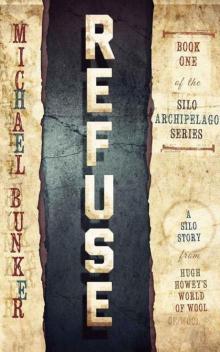 Refuse (The Silo Archipelago Series Book 1)
Refuse (The Silo Archipelago Series Book 1)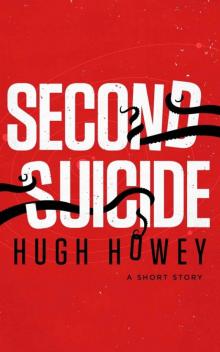 Second Suicide: A Short Story
Second Suicide: A Short Story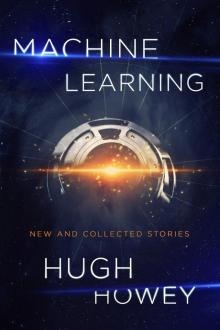 Machine Learning: New and Collected Stories
Machine Learning: New and Collected Stories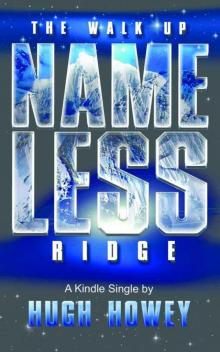 The Walk Up Nameless Ridge
The Walk Up Nameless Ridge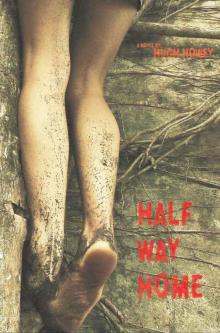 Half Way Home
Half Way Home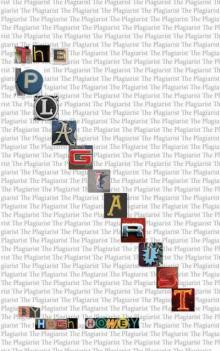 The Plagiarist
The Plagiarist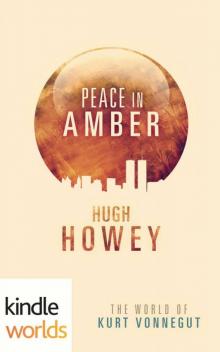 Peace in Amber
Peace in Amber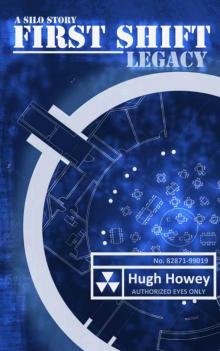 First Shift: Legacy
First Shift: Legacy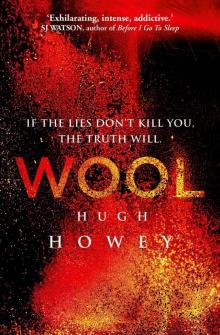 Wool
Wool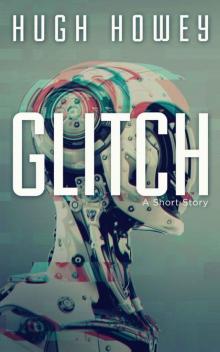 Glitch
Glitch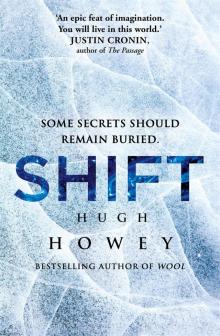 Shift
Shift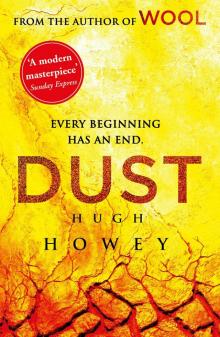 Dust
Dust Molly Fyde and the Land of Light
Molly Fyde and the Land of Light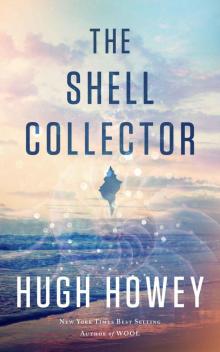 The Shell Collector
The Shell Collector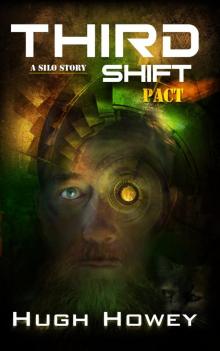 Third Shift: Pact
Third Shift: Pact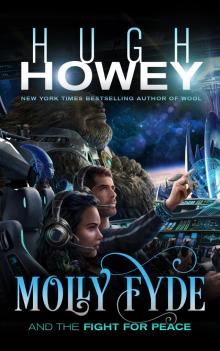 Molly Fyde and the Fight for Peace
Molly Fyde and the Fight for Peace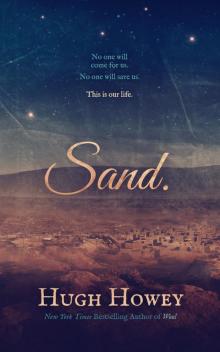 Sand Omnibus
Sand Omnibus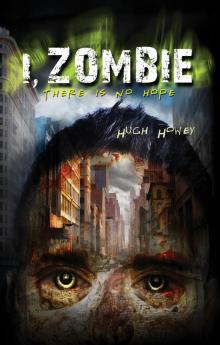 I, Zombie
I, Zombie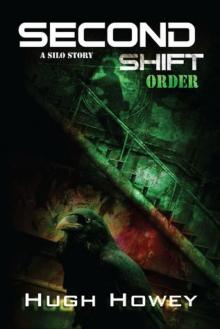 Second Shift: Order
Second Shift: Order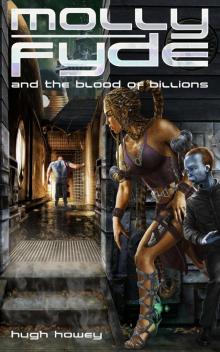 Molly Fyde and the Blood of Billions
Molly Fyde and the Blood of Billions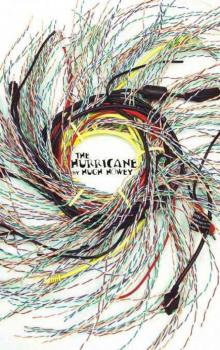 The Hurricane
The Hurricane The Box
The Box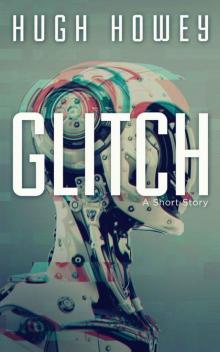 Glitch_A Short Story
Glitch_A Short Story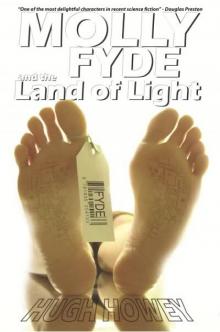 Molly Fyde and the Land of Light tbs-2
Molly Fyde and the Land of Light tbs-2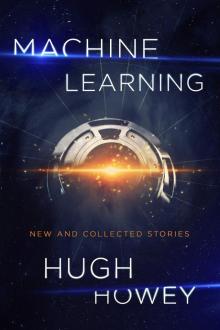 Machine Learning
Machine Learning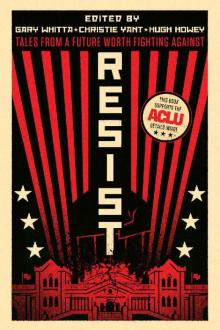 Resist
Resist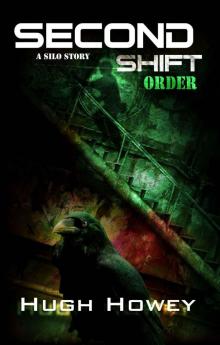 Second Shift - Order (Part 7 of the Silo Series) (Wool)
Second Shift - Order (Part 7 of the Silo Series) (Wool)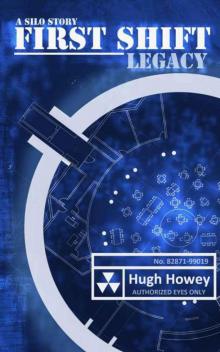 First Shift - Legacy s-1
First Shift - Legacy s-1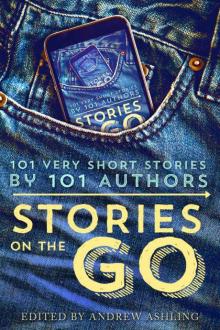 Stories on the Go: 101 Very Short Stories by 101 Authors
Stories on the Go: 101 Very Short Stories by 101 Authors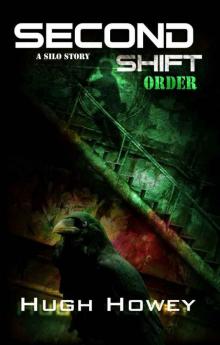 Second Shift - Order s-2
Second Shift - Order s-2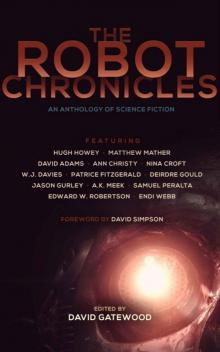 The Robot Chronicles
The Robot Chronicles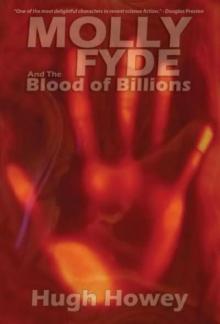 Molly Fyde and the Blood of Billions tbs-3
Molly Fyde and the Blood of Billions tbs-3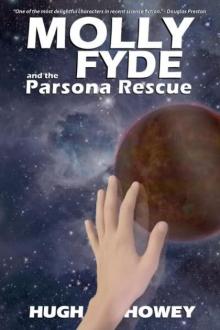 Molly Fyde and the Parsona Rescue tbs-1
Molly Fyde and the Parsona Rescue tbs-1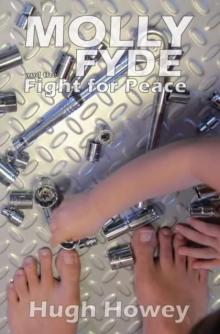 Molly Fyde and the Fight for Peace tbs-4
Molly Fyde and the Fight for Peace tbs-4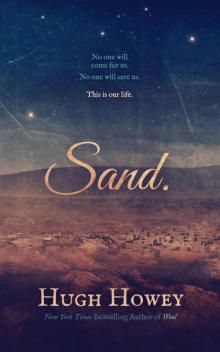 Sand
Sand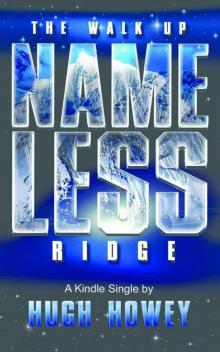 The Walk Up Nameless Ridge (Kindle Single)
The Walk Up Nameless Ridge (Kindle Single)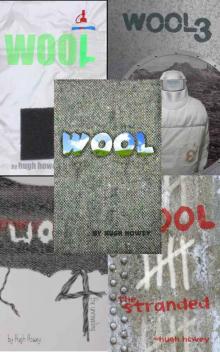 Wool Omnibus Edition (Wool 1 - 5)
Wool Omnibus Edition (Wool 1 - 5)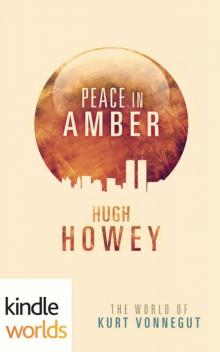 The World of Kurt Vonnegut: Peace in Amber
The World of Kurt Vonnegut: Peace in Amber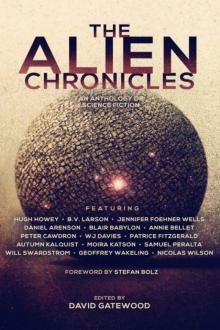 The Alien Chronicles
The Alien Chronicles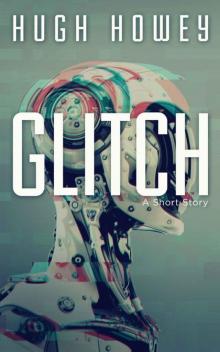 Glitch: A Short Story (Kindle Single)
Glitch: A Short Story (Kindle Single)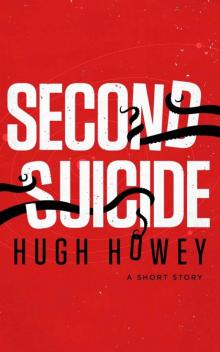 Second Suicide: A Short Story (Kindle Single)
Second Suicide: A Short Story (Kindle Single)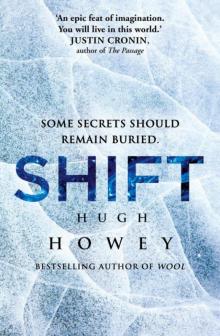 Shift (silo)
Shift (silo)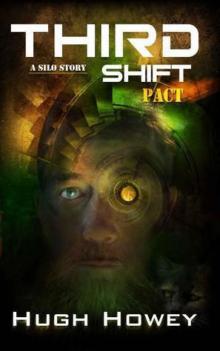 Third Shift - Pact
Third Shift - Pact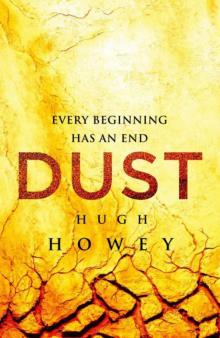 Dust s-9
Dust s-9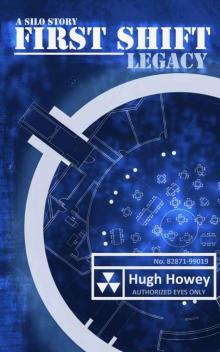 First Shift - Legacy (Part 6 of the Silo Series) (Wool)
First Shift - Legacy (Part 6 of the Silo Series) (Wool)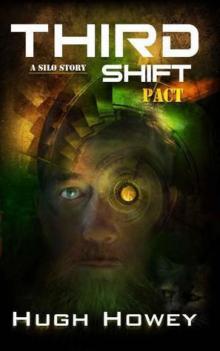 Third Shift - Pact s-3
Third Shift - Pact s-3 Sand: Omnibus Edition
Sand: Omnibus Edition The Box: A Short Story
The Box: A Short Story